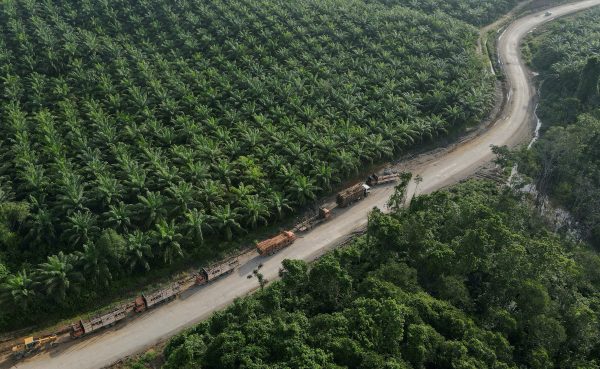The ministerial decree contradicted a presidential decree issued by President Joko ‘Jokowi’ Widodo in April 2022 which temporarily banned the export of crude palm oil to lower the price of cooking oil — made from processed palm oil — in Indonesia.
Two days earlier, Minister of Investment Bahlil Lahadalia issued a statement sharing his plans to declare his candidacy for Golkar Party chairman and replace Airlangga. He claims to have heard concerns from many party officials, with these officials allegedly calling for an overhaul of Golkar’s national leadership to improve its standing in opinion polls before the 2024 Indonesian general election.
Bahlil’s statement was interpreted by many analysts as yet another power struggle within Indonesia’s second-largest party. After his statement was issued, there was speculation that Golkar Party leaders would call for an Extraordinary National Congress in which party officials would vote on a non-confidence motion against Airlangga. If successfully ousted, Bahlil or another Golkar-affiliated politician would be chosen to replace Airlangga.
The threat of facing criminal prosecution for his involvement in the palm oil export scandal was apparently enough for Airlangga to declare Golkar’s support for Prabowo Subianto’s presidential candidacy. The retired general’s third presidential contest is also receiving a major boost from Jokowi’s tacit endorsement. Over the past few months, Jokowi has preferred him over Ganjar Pranowo from the Indonesian Democratic Party of Struggle, as Ganjar was perceived to be more loyal toward his party’s chief patron, former president Megawati Sukarnoputri, than to the outgoing president.
The Golkar Party’s endorsement of Prabowo continues the party’s tradition of endorsing presidential candidates it believes have the strongest chance of winning Indonesia’s post-Reformasi elections. The Golkar Party has consistently won since the fall of its founding patron, former president Suharto, in 1998.
Many analysts consider the turmoil in the Golkar Party as another intervention from the Jokowi administration on the internal affairs of Indonesian political parties. They believe what is really at stake is not merely an alleged corruption scandal involving Airlangga, but a plot to ensure parties aligned to Jokowi’s large coalition remain loyal to Jokowi and whoever he picks as his successor in next year’s presidential election.
Airlangga, who was first elected as Golkar Chairman in 2017, is increasingly being seen by the president’s inner circle as a ‘loose cannon’ who may destabilise their plan to ensure a smooth succession to a presidential candidate loyal to Jokowi and who will carry on his key policies — either Prabowo or Ganjar.
This is because Airlangga — who made no secret of his ambition to be a vice presidential candidate to either Ganjar or Prabowo — has held several meetings with Surya Paloh, chairman of the National Democratic Party (Nasdem) and a ‘kingmaker’ who has championed the presidential candidacy of former governor of Jakarta Anies Baswedan. This signifies that the Golkar Party might endorse the latter’s presidential bid.
Anies, who served as Jokowi’s Minister of Education and Culture from 2014 to 2016 until he was sacked by the president, is disliked by Jokowi and his inner circle. Jokowi and his close confidants are concerned that if elected president, Anies might overhaul the outgoing president’s domestic agenda and launch anti-corruption probes against members of Jokowi’s inner circle.
Airlangga and the Golkar Party are not the only politicians and political parties that have come under pressure from the president. The Nasdem Party and its leader, Surya Paloh, are also thought to have earned the president’s displeasure. In May 2023, Nasdem politician Johnny Plate was sacked from the Ministry of Communication and Information portfolio, due to his involvement in a corruption scandal.
Instead of being replaced by another politician from the Nasdem Party, Jokowi appointed Budi Arie Setiadi, former chair of the pro-Jokowi campaign volunteers group known as ‘Projo’, to replace Plate. Another Nasdem minister, Minister of Agriculture Syahrul Yasin Limpo, is under investigation in a corruption scandal.
These examples illustrate Jokowi’s heavy-handed interventions to ensure that whoever succeeds him will remain loyal to him, endorse his chosen successor and support the continuation of his policies. But such interventions violate one of democracy’s cardinal rules — that political parties are independent institutions that ensure the president is held accountable through a strong check-and-balance mechanism. If such interventions continue, they could weaken Indonesia’s standing as the third-largest democracy in the world, which has eroded during Jokowi’s presidency.
Alexander R Arifianto is Senior Fellow in the Indonesia Programme at the S Rajaratnam School of International Studies (RSIS), Nanyang Technological University, Singapore.

